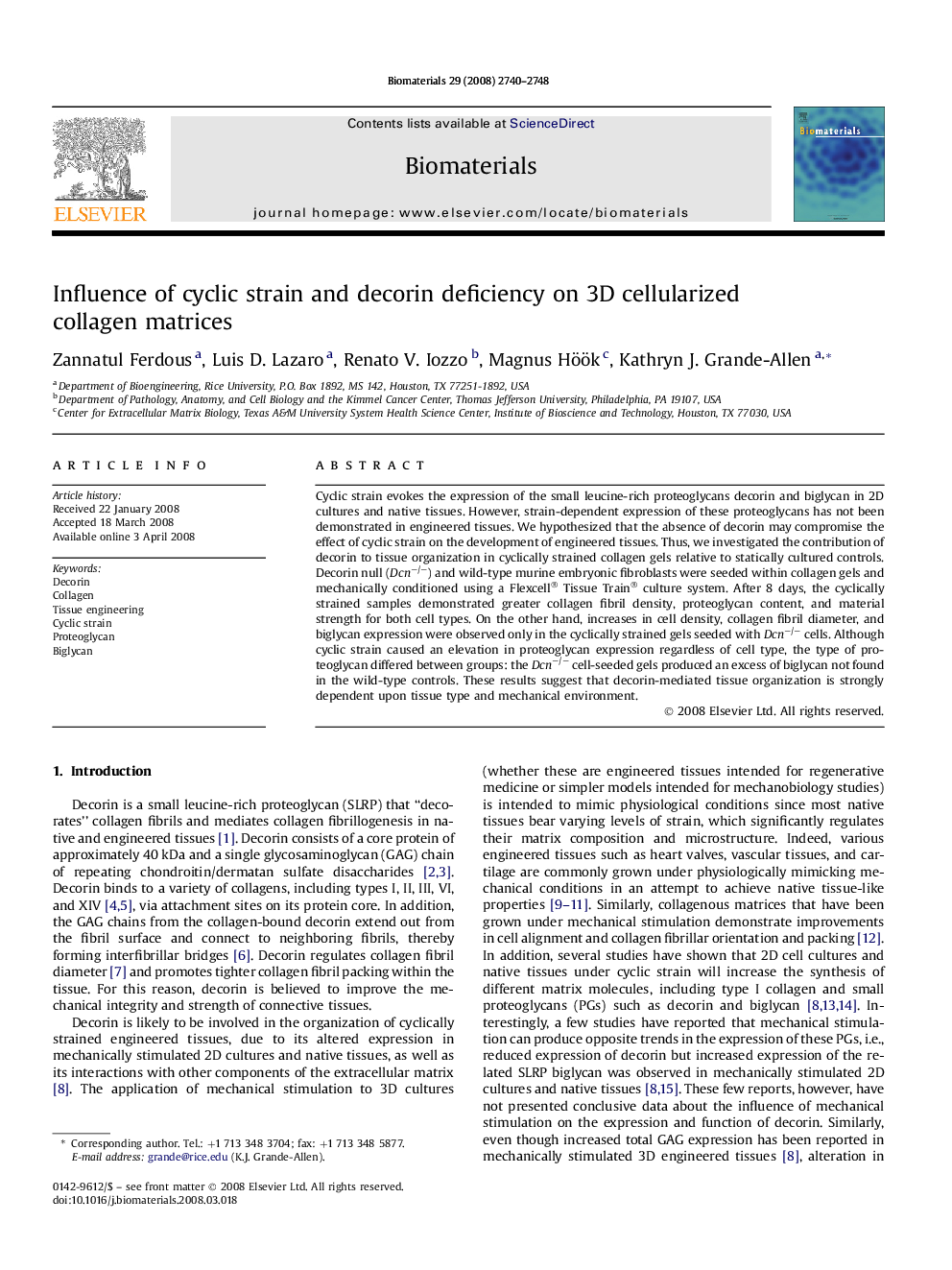| Article ID | Journal | Published Year | Pages | File Type |
|---|---|---|---|---|
| 9860 | Biomaterials | 2008 | 9 Pages |
Cyclic strain evokes the expression of the small leucine-rich proteoglycans decorin and biglycan in 2D cultures and native tissues. However, strain-dependent expression of these proteoglycans has not been demonstrated in engineered tissues. We hypothesized that the absence of decorin may compromise the effect of cyclic strain on the development of engineered tissues. Thus, we investigated the contribution of decorin to tissue organization in cyclically strained collagen gels relative to statically cultured controls. Decorin null (Dcn−/−) and wild-type murine embryonic fibroblasts were seeded within collagen gels and mechanically conditioned using a Flexcell® Tissue Train® culture system. After 8 days, the cyclically strained samples demonstrated greater collagen fibril density, proteoglycan content, and material strength for both cell types. On the other hand, increases in cell density, collagen fibril diameter, and biglycan expression were observed only in the cyclically strained gels seeded with Dcn−/− cells. Although cyclic strain caused an elevation in proteoglycan expression regardless of cell type, the type of proteoglycan differed between groups: the Dcn−/− cell-seeded gels produced an excess of biglycan not found in the wild-type controls. These results suggest that decorin-mediated tissue organization is strongly dependent upon tissue type and mechanical environment.
